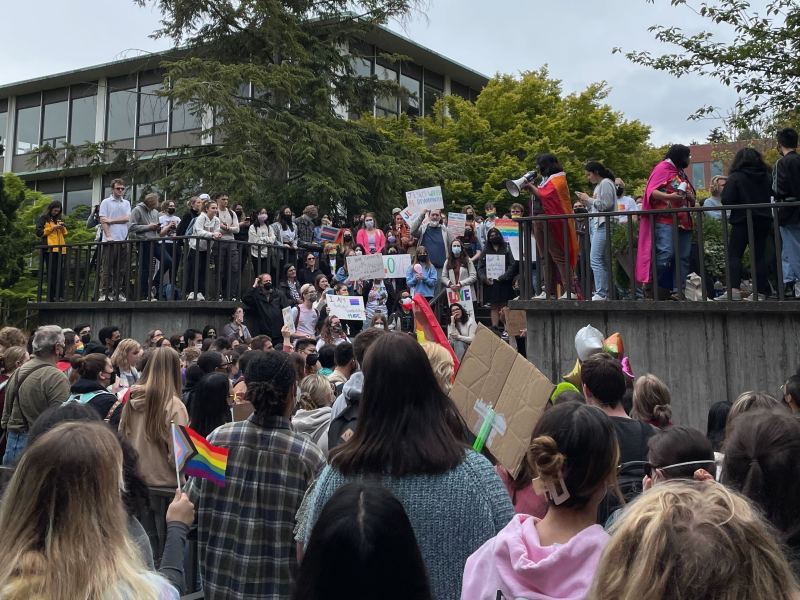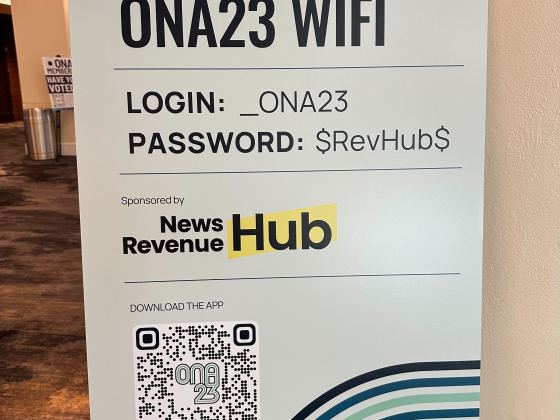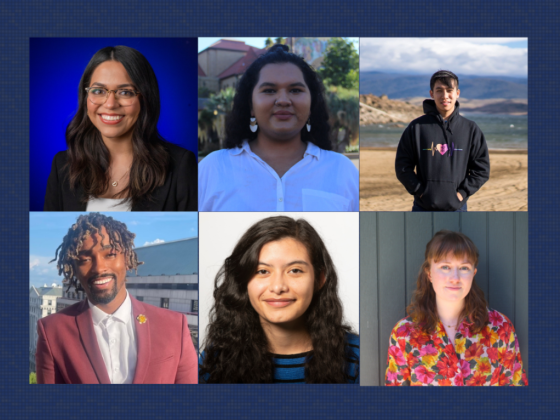How a homophobic hiring policy helped me reconcile my religious upbringing
I attend a private Christian university — but I am not Christian.
To be fair, I grew up in a religious household. For years I went to church two times a week: Sunday mornings and Tuesday nights. I memorized hundreds of verses and sang thousands of hymns.
I grew up believing in God, and though I wouldn’t say I ever stopped believing in God’s existence, during my early high school years I realized I no longer had any desire to be Christian. This change was mostly due to the negative treatment I received at Awana Club, the Tuesday night youth group I attended from three years old until I graduated high school.
I had vastly different political beliefs than the other students in my age group, which made me the target of disapproving speeches and sexist jokes from my peers and mentors alike; I was pro-choice, I was anti-evangelicalism and I didn’t think being gay was a “lifestyle choice.”
At Awana I was ostracized and at my Sunday church I was simply ignored. I would sit by myself while the other students waxed poetic about how the community of our church changed them for the better.
My last two years of high school, I was as far from God as I have ever been.
A shocking choice
All that to say, it was a surprise to most people in my life when I decided to attend Seattle Pacific University, a small private Christian school in Washington state. My parents are alumni of SPU, which is what put it on my radar in the first place, and after growing up in the suburbs of Colorado I was eager to move to a big city. SPU also does not require students to be Christian to attend.
Aside from the scholarship money they offered and the draw of the “Seattle experience,” I chose SPU because I so badly wanted to return to the faith I’d grown up with. I hoped the mandatory theology courses would help me regain the joy I’d found in God as a kid.
Let’s just say, I had no idea what I was getting into.
Queer activism on a Christian campus
In January of 2021 — about five months after I started at SPU — an adjunct nursing professor sued the school, alleging he had been denied full-time employment because he was gay. This lawsuit unearthed a hiring policy, sanctioned by SPU’s Board of Trustees, that states LGBTQ+ individuals cannot be hired as faculty members.
The next two years at SPU could be described as nothing short of a civil war.
Protests were held. Petitions were signed. Queer-affirming faculty hung pride flags in their windows and put rainbows in their email signatures. A two month long sit-in was staged outside the president’s office.
The Attorney General of Washington State investigated the university, spurred by a barrage of tweets from the SPU community. A TikTok documenting a protest at graduation went viral, eliciting responses from celebrities including Mark Hamill and Jonathan Van Ness.
Yet, the board voted to retain the hiring policy. In response, a group of SPU students, staff and faculty filed a lawsuit against members of the board of trustees for fraud and breach of fiduciary duty.
Misunderstanding Christianity
From the outside looking in, the conflict at SPU seems to be Christianity versus queerness. Comments left on Instagram posts and TikToks describing SPU’s issues often ask: “Why would you go to a Christian school if you’re gay?” The board of trustees, like these commenters, see Christianity and queerness as opposites.
Yet, in Genesis, the first book of the Bible, it states that human beings are made in the image of God, regardless of gender. Whether gay, straight, trans or cis, all people are God’s children.
I am no more Christian now than I was three years ago. I don’t attend church and I don’t pray before dinner, but I have learned that there is always more to a story than what is on the surface. For many people in my life, God gives them hope and motivation and meaning, even if I don’t share that same experience.
The first day of the sit-in in May 2022, an SPU alumni led us in singing “Jesus Loves Me” outside the president’s office. As we sang, I cried, for the queer people that SPU was harming, but also for the little girl in me whose faith in God was once unwavering. I hope one day I’ll meet her again.






